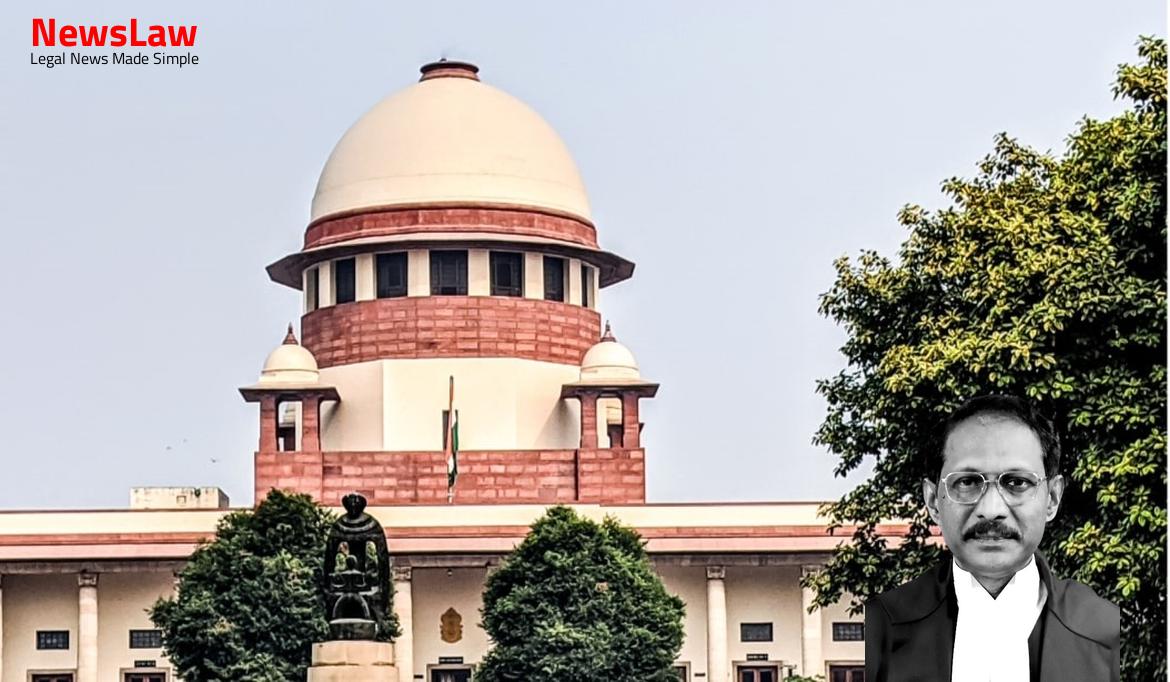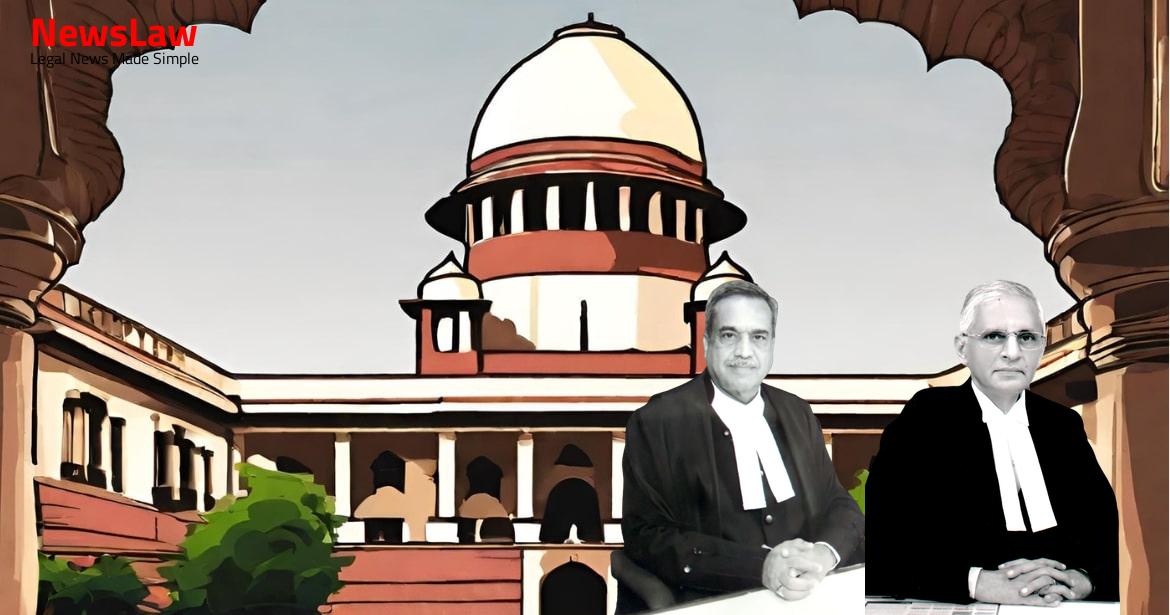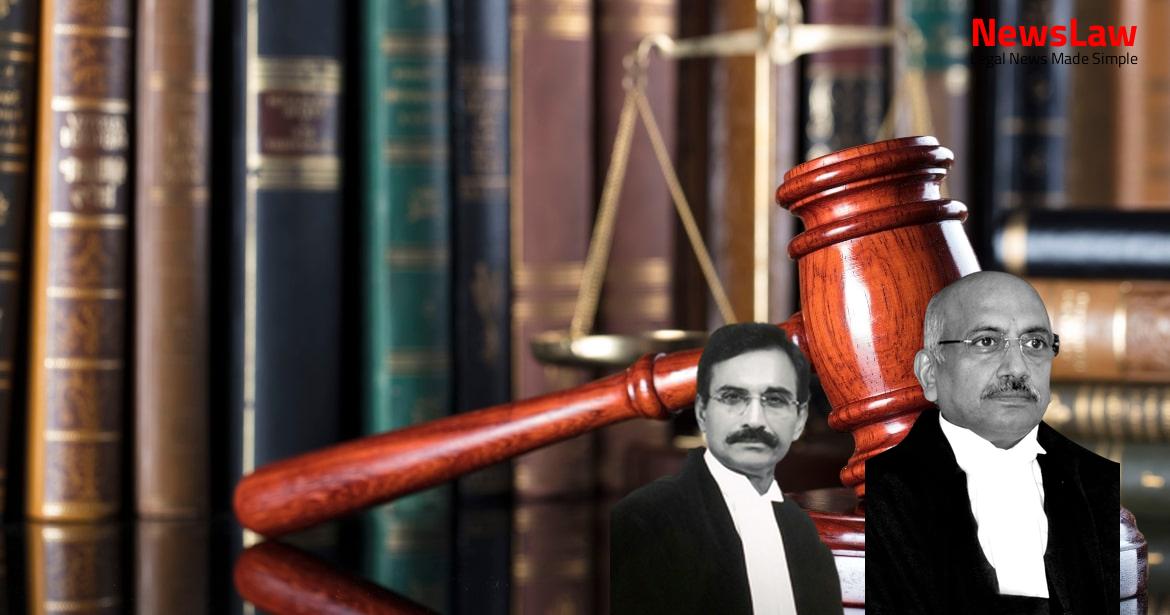The appellant is the complainant in CC
No 681 of 2017 and the other complaints, filed against the accused – respondent no.2 under Section 138 and 142 of the Negotiable Instruments Act (‘NI Act’ for short). The respondent No.2 failed to comply with the condition in the promissory note but on 28.04.2017 issued a cheque bearing No.548045 drawn on the Vijaya Bank, J.P. The respondent No.2 herein however filed the petition in CRL.P No.12675 of 2018 and analogous petitions under Section 482 of the Criminal Procedure Code, 1973 (for short ‘CrPC’) before the High Court praying to quash proceedings under CC
No 681 of 2017 and analogous complaints.
In view of Section 25 (3) of the Indian Contract Act, the promise/ agreement is valid and therefore the same is enforceable.
It is contended that the earlier view while considering that the presumption under Section 139 NI Act will apply, did not consider the scope in a criminal trial and the bearing that Section 322 of CrPC would have in the light of the decision in Expeditious Trial of Cases Under Section 138 of NI Act 1881, (2021) SCC OnLine SC 325 and thus did not consider the jurisdictional fact for invoking Section 138 NI Act. The High Court referred to Section 25(3) of the Contract Act, 1872 on which reliance was placed by the complainant and observed that with regard to payment of time-barred debt, there must be a distinct promise to pay either whole or in part the debt; that the promise must be in writing either signed by the person concerned or by his duly appointed agent.
After referring to certain judgments on the question of legally enforceable debt, the High Court stated that for the purpose of invoking Section 138 read with Section 142 of the NI Act, the cheque in question must be issued in respect of legally enforceable debt or other liability. Even under Section 139 of the Act, it is specifically stated that it shall be presumed, unless the contrary is proved, that the holder of a cheque received the cheque of the nature referred to in Section 138 for discharge, in whole or in part, of any debt or other liability. If the amount borrowed by the respondent is shown in the balance sheet, it may amount to acknowledgment and the creditor might have a fresh period of limitation from the date on which the acknowledgment was made. If for example, the cheque was drawn in respect of a debt or liability payable under a wagering contract, it could have been said that that debt or liability is not legally enforceable as it is a claim, which is prohibited under law.
In that light, this Court was of the view that entertaining a petition under Section 482 CrPC to quash the proceedings at the stage earlier to the evidence would not be justified. It is further contended by the learned Amicus Curiae that even the position under Section 25(3) of the Contract Act being applicable to criminal proceedings for dishonour of cheque will have to be examined in the background of the provision contained in the Explanation to Section 138 of NI Act which specifies that the debt or other liability enforceable would be only a legally enforceable debt or other liability. No other elaboration is required even if the observations contained in the case of Expeditious Trial of Cases under Section 138 of NI Act (supra) is taken note, since, whether the debt in question is a legally enforceable debt or other liability would arise on the facts and circumstance of each case and in that light the question as to whether the power under Section 482
CrPC is to be exercised or not will also arise in the facts of such case.
In that regard the perusal of the impugned judgment would disclose that the very narration as contained in para 4 of the impugned order would indicate that the consideration therein was predicated only on two facts as noted by the High Court, (i) that the promissory notes are of the year 2012, (ii) that the cheques are issued in the year 2017. A perusal of the above-extracted and emphasised portion would indicate that the promise is to repay the principal amount with the interest accrued within December, 2016. The provision would indicate that in respect of a promissory note payable at a fixed time, the period of limitation being three years would begin to run when the fixed time expires. The complaint in CC No.681 of 2017 was filed in the Court of the Chief Metropolitan Magistrate on 11.07.2017.
Keeping in view that the matter has been pending from the year 2017, the Trial Court shall now proceed with the matters as expeditiously as possible but in any event shall dispose of the matter within six months from the date on which a copy of this judgment is furnished.
Case Title: K. HYMAVATHI Vs. THE STATE OF ANDHRA PRADESH (2023INSC811)
Case Number: Crl.A. No.-002743-002743 / 2023



